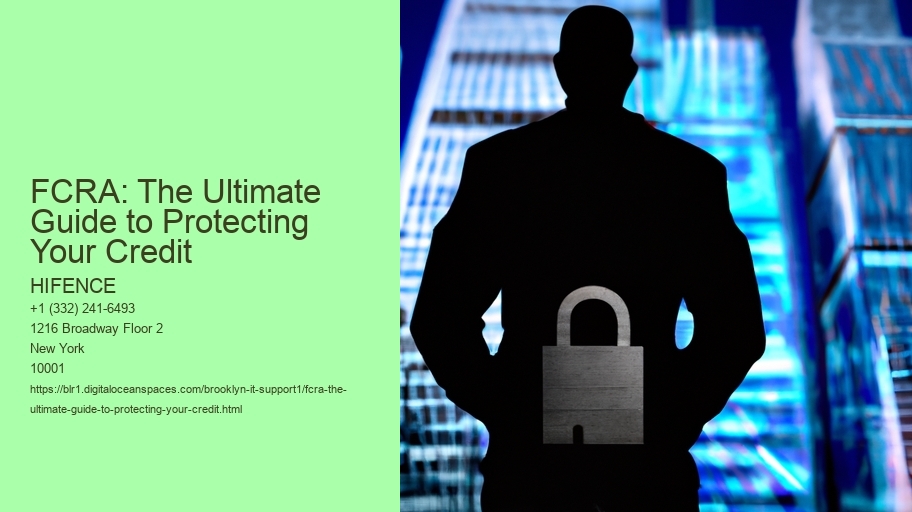The Fair Credit Reporting Act, or FCRA, (its a mouthful, I know!) is basically your legal superpower when it comes to your credit report. Think of it as a shield against errors and inaccuracies that could be unfairly dragging down your credit score. And believe me, a good credit score is crucial in todays world, impacting everything from getting a loan for a car or house to even landing a job or renting an apartment.
So, what exactly does the FCRA do? Well, its all about fairness and accuracy. It gives you the right to access your credit report from the major credit bureaus (Equifax, Experian, and TransUnion) for free once a year.
FCRA: The Ultimate Guide to Protecting Your Credit - managed it security services provider
- managed services new york city
- managed service new york
- check
- managed services new york city
- managed service new york
- check
- managed services new york city
- managed service new york
- check
- managed services new york city
- managed service new york
- check
FCRA: The Ultimate Guide to Protecting Your Credit - managed services new york city
- check
- check
- check
- check
- check
- check
- check
- check
- check
- check
Imagine someone put false information on your resume. Youd want to know, right? Your credit report is kind of like your financial resume, and the FCRA lets you make sure it's accurate. If you find errors – maybe an account that isnt yours, a payment that was incorrectly reported as late, or even outdated information – the FCRA provides a process for you to dispute it. You have the right to challenge these inaccuracies and require the credit bureaus to investigate. They have a certain time frame (usually 30 days) to look into your claim and either verify the information or remove it from your report.
This is where the "ultimate guide" part comes in. Knowing your rights under the FCRA is the first step, but successfully navigating the dispute process can be tricky. You need to document everything, send your disputes in writing (certified mail is a good idea to have proof!), and keep track of deadlines.
FCRA: The Ultimate Guide to Protecting Your Credit - check
- managed it security services provider

Furthermore, the FCRA dictates how long negative information can stay on your credit report. Generally, its seven years for most negative items, and ten years for bankruptcies.
FCRA: The Ultimate Guide to Protecting Your Credit - managed services new york city
The FCRA also places restrictions on who can access your credit report. Generally, only businesses with a "permissible purpose" can pull your credit.
FCRA: The Ultimate Guide to Protecting Your Credit - managed it security services provider
- managed service new york
- managed it security services provider
- managed service new york
- managed it security services provider
FCRA: The Ultimate Guide to Protecting Your Credit - managed services new york city
- managed service new york
- check
- managed service new york
- check
- managed service new york
- check
- managed service new york
- check
- managed service new york
In short, the FCRA is a powerful tool that empowers you to protect your credit. Its not just some legal mumbo jumbo; its your right to a fair and accurate credit report, and its your responsibility to use it.
FCRA: The Ultimate Guide to Protecting Your Credit - managed services new york city
- check
- managed it security services provider
- managed service new york
- check
- managed it security services provider
